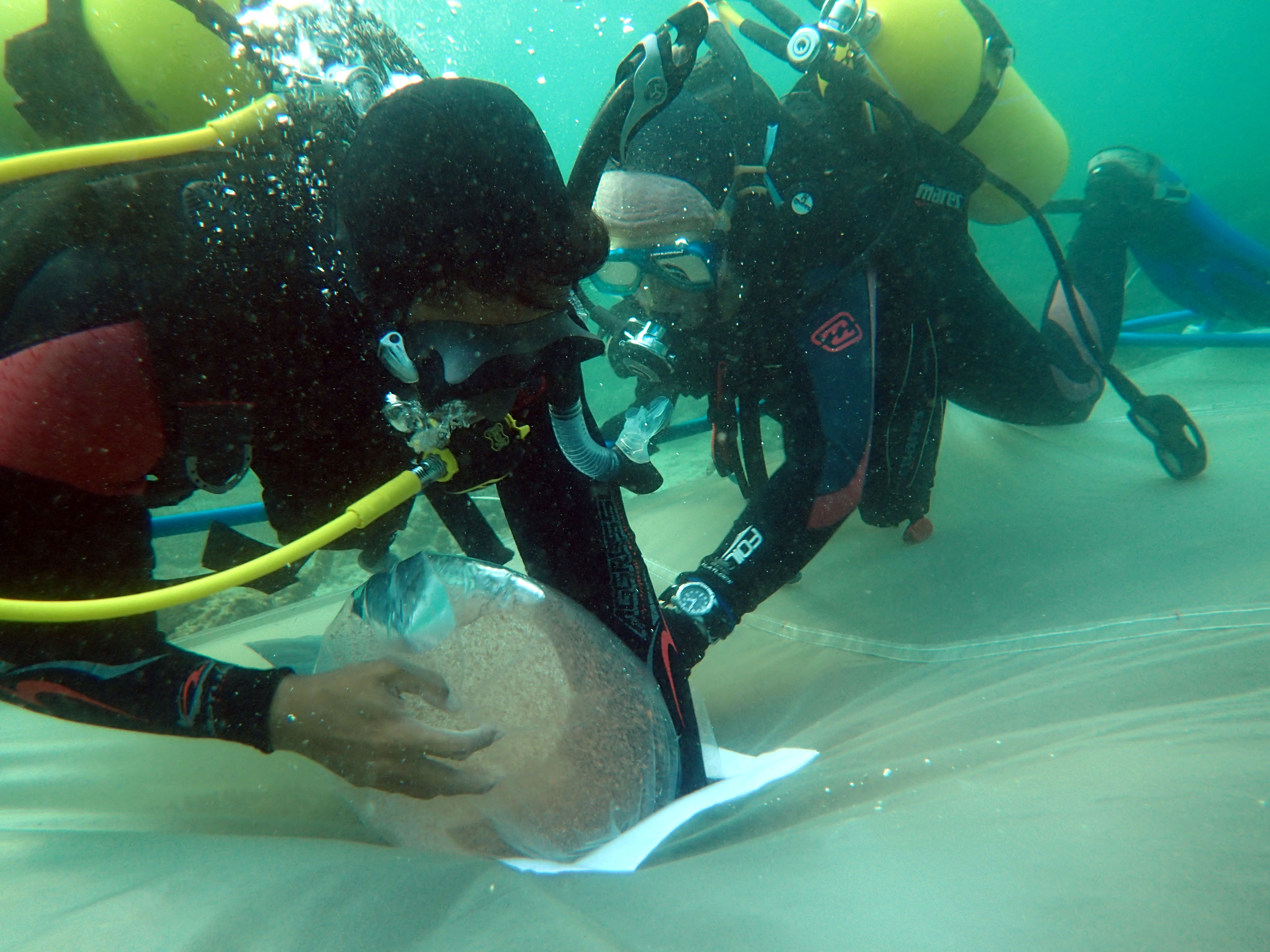Research breakthrough could lead to repair of damaged coral reefs

Degradation and loss of coral reefs around the world is among the most obvious examples of the damage humans have done to our planet. But a breakthrough project in coral reproduction research could mean the restoration and repair of reefs around the world– and it all relies on hot, steamy, coral sex.
The coral larval restoration project, led by Southern Cross University’s Professor Peter Harrison, has been working in the Philippines, in an area of reef highly degraded by blast fishing. Funded by ACIAR, Professor Harrison’s team grows millions of coral larvae and then delivers them onto the reefs in large underwater mesh tents. The results have been incredible.
Professor Harrison’s team grows millions of coral larvae in tanks, and then delivers them onto the reefs in large underwater mesh tents. The results have been incredible.
This research project has proven is that microscopic coral larvae can settle and grow as colonies to the size of dinner plates within three years, and be able to sexually reproduce at this early age.
This is the first study anywhere in the world that has successfully re-established a breeding coral population from coral larvae settling directly on the reef, and proves that we can start to restore damaged and degraded reefs.
Quick statistics:
- WTO has Fish and fishery products the most heavily traded food commodities in the world, particularly in developing countries where they can account for more than half of the total value of all traded commodities.
- FAO estimates that fisheries and aquaculture assure the livelihoods of 10-12 percent of the world’s population with more than 90% of those employed by capture fisheries working in small-scale operations in developing countries.
- The World Wildlife Foundation estimates that:
- Properly managed coral reefs can yield an average of 15 tonnes of fish and other seafood per square kilometer each year.
- The total economic value of Philippine reefs is estimated at US$1.1 billion annually.
- Southeast Asia is considered the global epicentre of marine diversity. Its 100,000km2 of coral reefs (34% of the world’s total) are home to over 600 of the 800 reef-building coral species in the world.
- Indonesia and the Philippines hold 77% of Southeast Asia’s coral reefs and nearly 80% of threatened reefs.
Project specifics:
- Project ID: FIS/2014/063
- Project Country: Philippines
- Commissioned Organisation: Southern Cross University, Australia
- Project leader: Dr Peter Harrison
- Collaborating Institutions: Australian National University, Australia and University of the Philippines, Philippines
- Project budget: $1,199,856.00
- Timeline: May 2015-June 2020 (5 years)
Further information and interview requests contact: Simon Tolstrup, Royce, P: 0408 331 356 E: [email protected]



